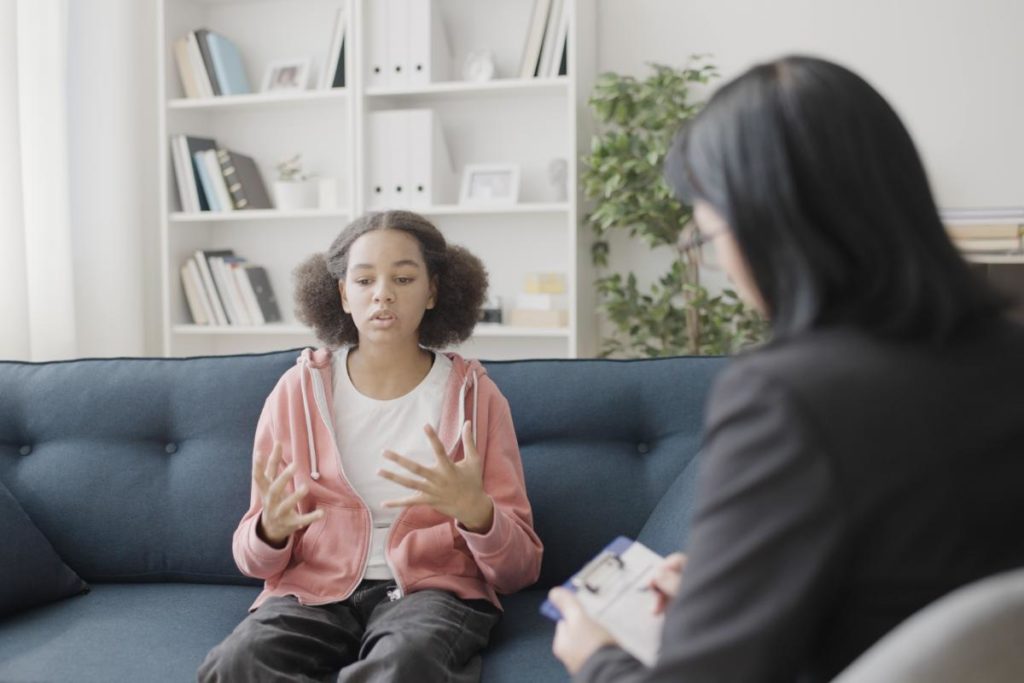Cognitive-behavioral therapy, or CBT, has had an upheaval in the fields of psychology and therapy, being studied and integrated into thousands of programs worldwide. What exactly is CBT, though? The short answer is that cognitive-behavioral therapy is a mode of therapy that focuses on the interplay between behavior and cognition and how one can influence the other. By understanding a patient’s thoughts, it stands to reason that their behavior should naturally stem from how they think. Introducing new ways of thinking, such as reducing self-destructive or deprecating thoughts, should, in turn, reduce their correlative behavior.
CBT has been a long-studied branch of therapy and one that has been particularly successful in aiding teenagers in their struggles. Addiction, depression, and other common disorders among adolescents can be managed and even overcome by implementing CBT programs into partial hospitalization or intensive outpatient treatment. At Imagine Spokane, our cognitive-behavioral therapy program is the cornerstone of our practice. Call 888.384.3143 to learn more.
The History of Cognitive-Behavioral Therapy
In the 1960s, psychiatrist Dr. Aaron T. Beck began to notice that the established psychoanalytic model failed to account for some of the results in his testing of depressed patients. His examinations tested whether or not a strong correlation between the way patients thought and how they felt existed, and patients responded positively.
At that time, depression was understood to be the result of a psychological propensity to hate the self, bubbling unconscious anger, or a brain disorder as the root cause. This consensus was not universally accepted. One group of psychologists, known as behaviorists, suggested that mental unwellness was a learned behavior rather than something that occurred unconsciously. Beck’s work paralleled this, citing depression as potentially being the product of modes of thought. “Automatic thoughts,” he said, were thoughts (both positive and negative) that were latent, unnoticed, or otherwise not taken into account when patients self-examined their cognition. Examples of automatic thoughts include:
- Fixating on a remark, grade, or evaluation
- Wondering how your reputation among friends is holding up
- Worrying about expectations
- Fearing over the course one’s life has taken
- Assigning labels and prejudices to others
The fusion of cognitive and behavioral therapy became known as, intuitively enough, cognitive-behavioral therapy. It applies the use of cognition as a force upon mental health and its relationship with the outward behavior caused by said force. It is a
How We Approach CBT For Teens
Following a major clinical trial in 1977, results found CBT to be the only talk therapy comparable to taking antidepressant medication. In the years since, cognitive-behavioral therapy has been subject to thousands of studies and found to be effective in treating a number of personal challenges. Teenagers, especially those struggling with substance use disorder and/or depression, find great success with CBT.
At Imagine Spokane, we start by addressing thought and behavior patterns that are contributing to a negative state of mind. This process locates unhelpful ways of thinking and either revises or replaces them with a better approach. Some discussions with the therapist will include how to:
- Evaluate problematic thinking
- Determine how those thoughts came to be
- Learn their own inner cognition, as well as that of others
- Implement critical thinking in everyday life
- Heighten self-esteem
CBT can benefit teens in crisis or struggling with addiction and compounding mental health disorders.
Reach Out to Imagine Spokane for Teen Cognitive-Behavioral Therapy
The CBT program at Imagine Spokane seeks to address the totality of what teens are going through, including multiple ongoing struggles, as well as the contributing factors that underlie their mental health. In cases like these, we adjoin the typical CBT program with our dual-diagnosis program to identify and treat co-occurring disorders. Whatever your teen’s situation may be, the trained professionals at Imagine Spokane have years of experience to better assist them in recovery. We impart skills that can aid in more than just mental wellness—they make for a better life. Don’t wait another day to contact us online or call 888.384.3143 to learn more about CBT.




